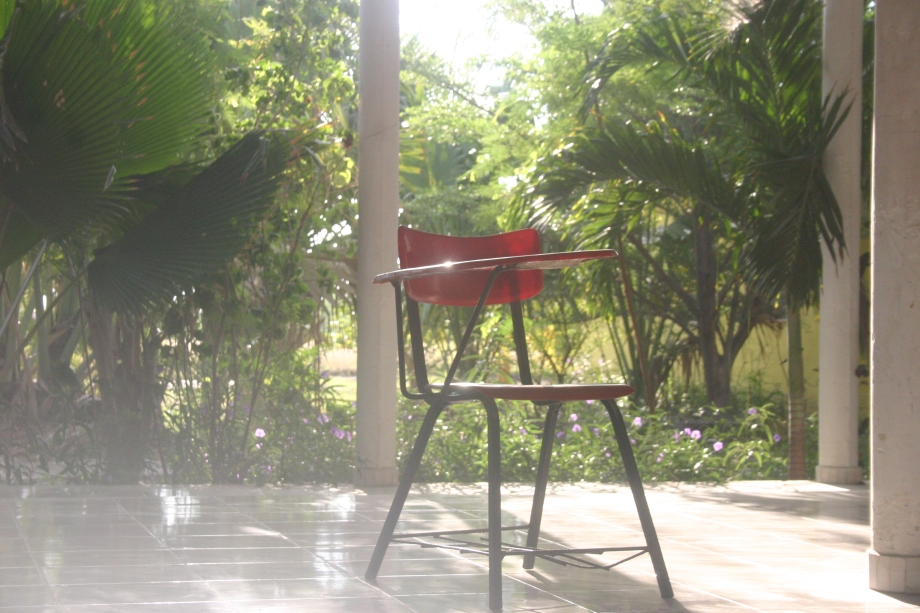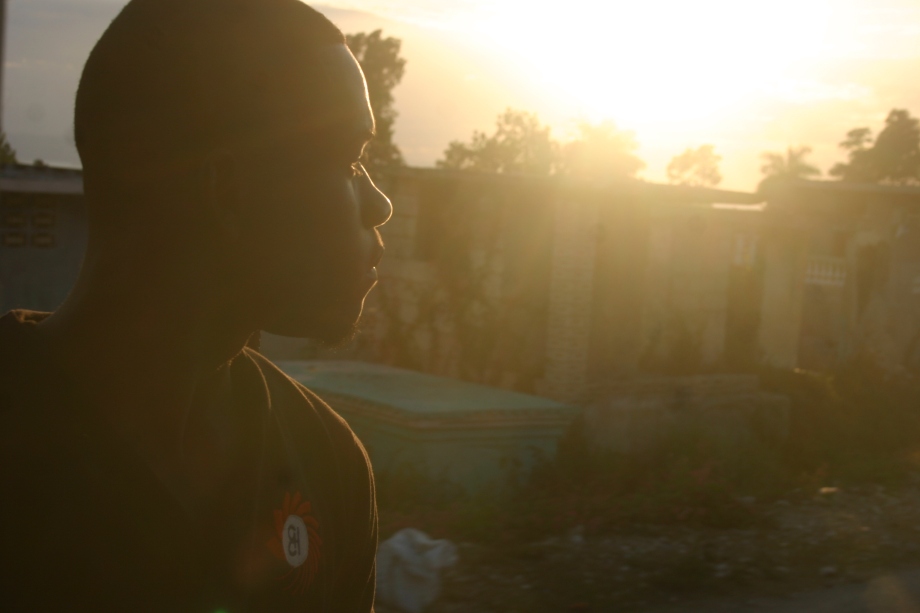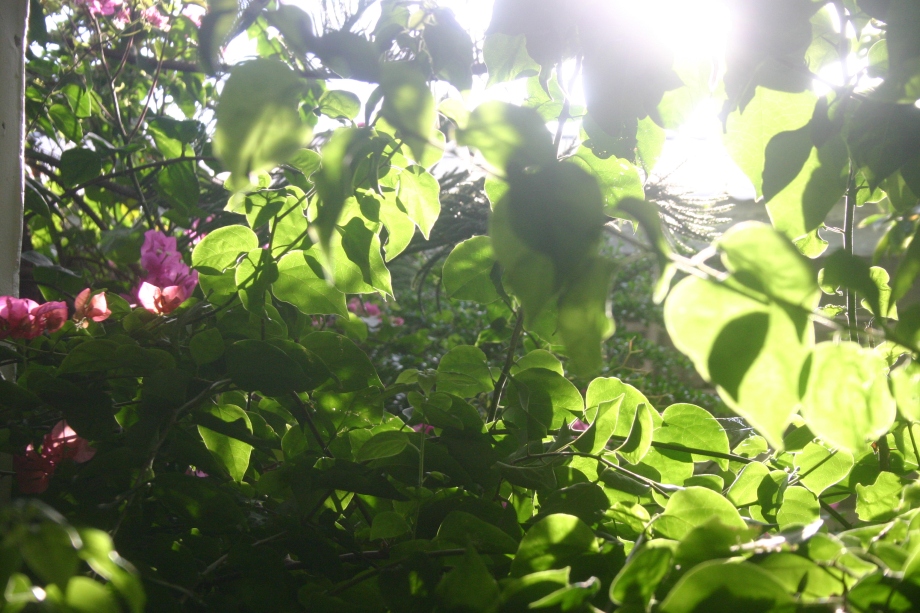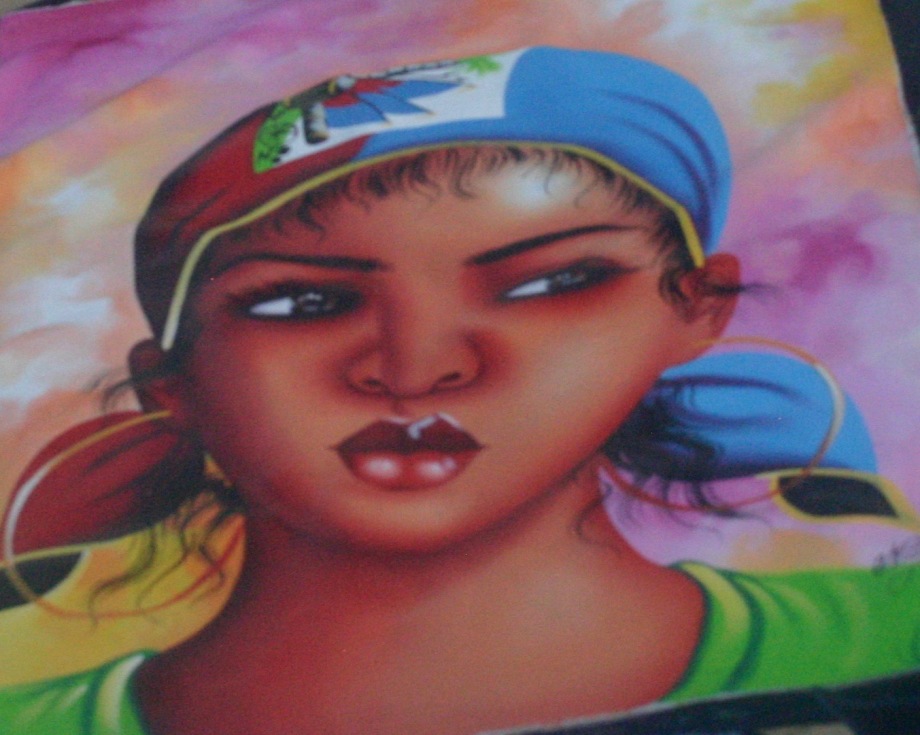“How is it? Was it your first time in a country like that?”
“Have you ever been to a place like that?”
“Is it still in pretty bad shape?”
“Was it amazing?”
“I think we can really make a difference here.”
Some of the things people have said to me upon hearing I was in Haiti. I wrestle with these words. With the ideas freely roaming in them. Wether it be the “needs saving”/ “I can save this”/ “this is unstable” ideas, I wrestle with them.
I’m looking through pictures and processing the jungle beauty of the campus we stayed at.
I was picked up at the airport by a Tesla Van; the doors opening vertically.
Wrestling with the tensions. Of wealth. Of perceptions of success and thriving.
I woke up and looked at the outlet by my bed. Acknowledging that it would work. Acknowledging that all of the outlets in my apartment would work. I breathed and reflected on the 10 days spent waking to colorful bougainvillea and enthusiastic roosters. On the balance between how I appreciate and love living in community so much with how I need a lot of space alone to process.
Culture shock humbles me. In a way I believe we should continuously be humbled. It humbles me as I arrive in a country and though may thrive in an environment of learning of norms and adaptation: I am humbled when it is brought to my awareness that there was something I completely missed and faux-pasd.
In this is the opportunity to learn and grow through connection, through intentional surrender and presence.

I am humbled by culture-shock as I still, time and time again, though I acknowledge others and my owns lack of knowledge in country, I make the mistake of, I suppose, minimizing the impact of this experience. I make the mistake of thinking, that because I know about culture shock, because I experience it continuously in the making of my identity, I will not be affected by it. I make the mistake of minimizing it. I forget that each experience is different.
I wonder at what would be the “perfect” learning environment? How to best support the acknowledgment of these things: of our own biases, of shifting gears, of communication, of interactions, of differences and tensions. And I also know, and recognize the value of surrender. I recognize the value of an experience that grows the things that perhaps were intended for it to grow in a way that allows for fluidity.
I suppose hereby enters the question of creativity and creation. As I look at this experience in the multiple layers of its implementation I can learn a lot. I can learn from my position as a student and participant, as a Franco-American educated foreigner, as a woman in a patriarchal foreign culture, as a future project implementer. What is there to learn here? In ten days, it is difficult to grasp anything truly of a culture, much less make sense of it. I struggle writing these responses for that reason. It is one thing to write journal entries about readings that we have, it is another to seek to reconcile the written text with the witnessed reality and how these coincide and play out and to listen to all of the voices surrounding you. I am thinking of how John Paul Lederach would only assist in a Peace building project in Nepal if it was made into a 10 year project. When I first heard of this, I immediately wondered at the impressive fact that someone could be in the position to make such a request. Sometimes, I feel frustrated at the fact that one might discover a truth that resonates with you and yet not be able to personally apply it and live it out.

In these circumstances I fear forgetting. I fear being changed by ways that force ways and do not support the thriving and development of what I resonate with and what I have heard echoed.
Humans are interesting like that. How do we grow, how do we ingest new information, how do we thrive in situations that are unfamiliar, how do we adapt and yet hold on to what we bring and actually bring it. I have found, in this experience in Haiti, much to be grateful for. I am grateful for the ability and opportunity to enter spaces where I can speak and be heard. I am grateful for the opportunity and trust in our skills that we are able to engage with and provide valuable material. I am grateful for the opportunity to utilize my personal skills and see them be of service as well as to witness others’ abilities and skills.
I am wondering at the effectiveness of “hands off” approaches and how they allow space for self-realization and confidence. Will other students feel this way? I am wondering as I am truly fascinated by creating experiences and supporting frameworks.
It is interesting to me, that these 10 days were so pleasant and that I know I want to work internationally. Yet, I want to recognize still, the tension of Haitian experience. This is a theme I think our field struggles with: how does one support a place, while acknowledge tensions? What does allyship look like? When does it come into play? Is it simply a North American political concept? How do we, as humans, acknowledge the meanings of our positions without having this shift the potential interactions we may have, simply as humans?
Last semester in my Adaptive Leadership Challenge research project, we examined houselessness in San Diego. There is a tension, in wanting for stigmas to be dropped, not to inform interaction and judgment, yet still needing to acknowledge and address the fullness of a situation. In our research, we almost tended to not make any mention of destructive behaviors linked to drug and alcohol use as they are so often used as narratives justifying actions.

In thinking of Haiti, how does one reconcile, what Athena mentioned more than once about being mindful of taking pictures that don’t reflect the challenges of Haiti in a negative way, yet also acknowledge real insecurities and issues. Am I still biased? Is it helpful to ask: why am I so focused on this when there is so much about American cultures and infrastructures that are problematic. Is it condescending for people to express sadness for Haiti? If we are really thinking that Haiti is in a “bad” situation, than how does one engage with that? What does support look like? Does it look like USAID support in capacity building? Does it look like international aid and development? How do we reconcile supporting sovereignty with cultural concepts of what “thriving” is and looks like? Especially considering that Haiti’s sovereignty has always been undermined by prominent world powers to their own benefit.

